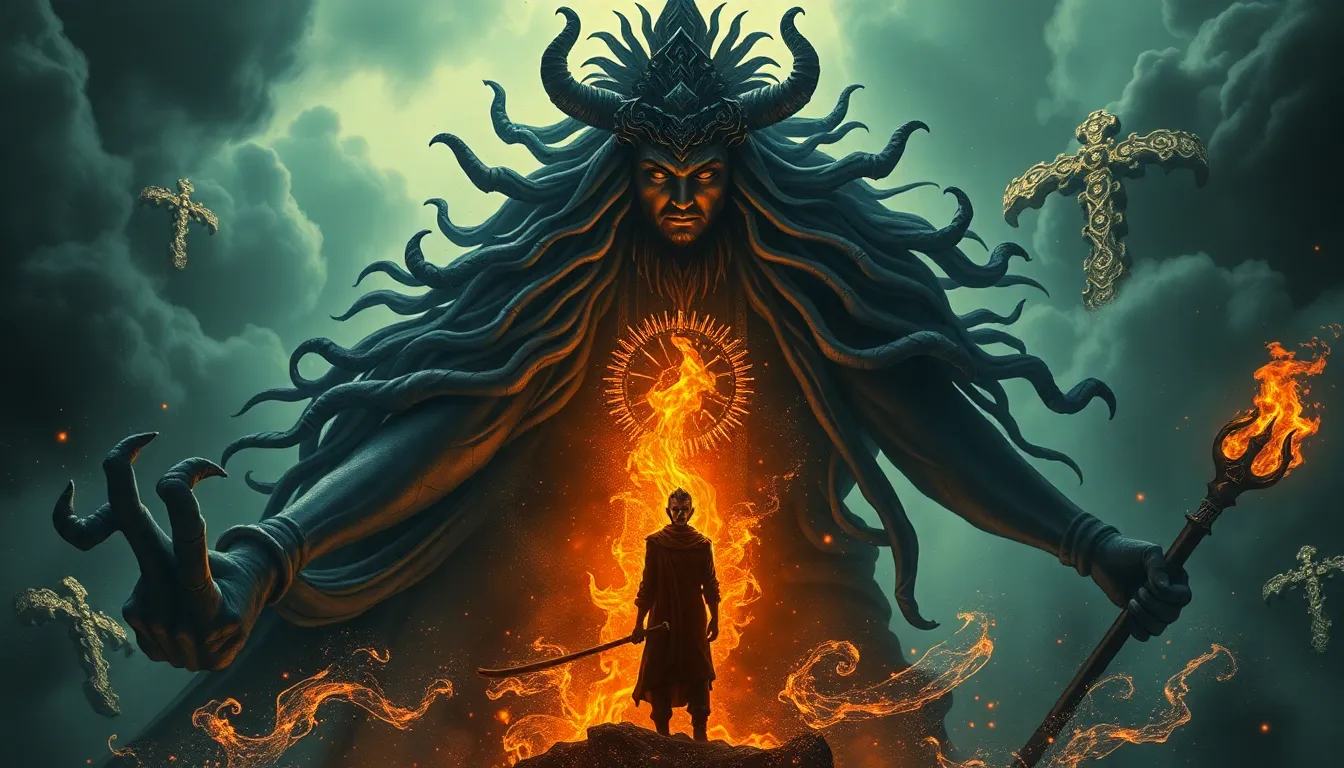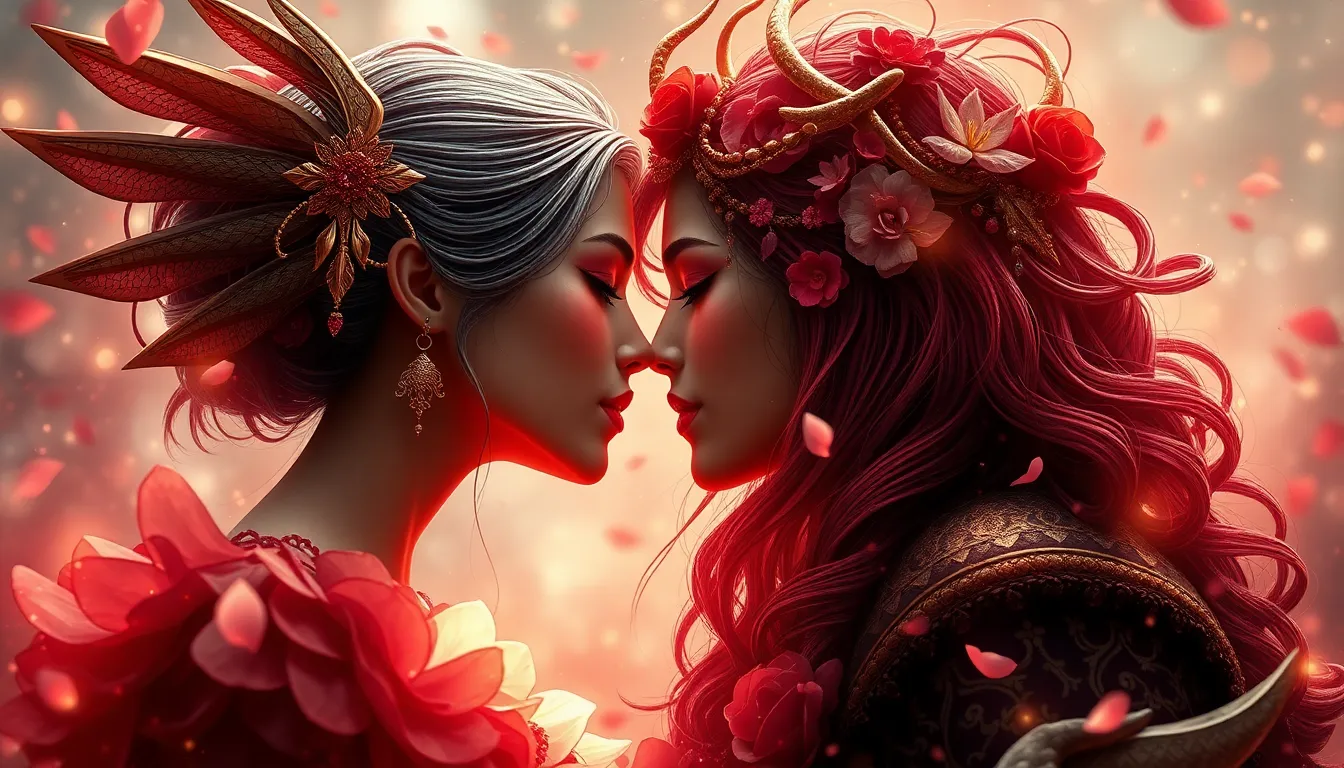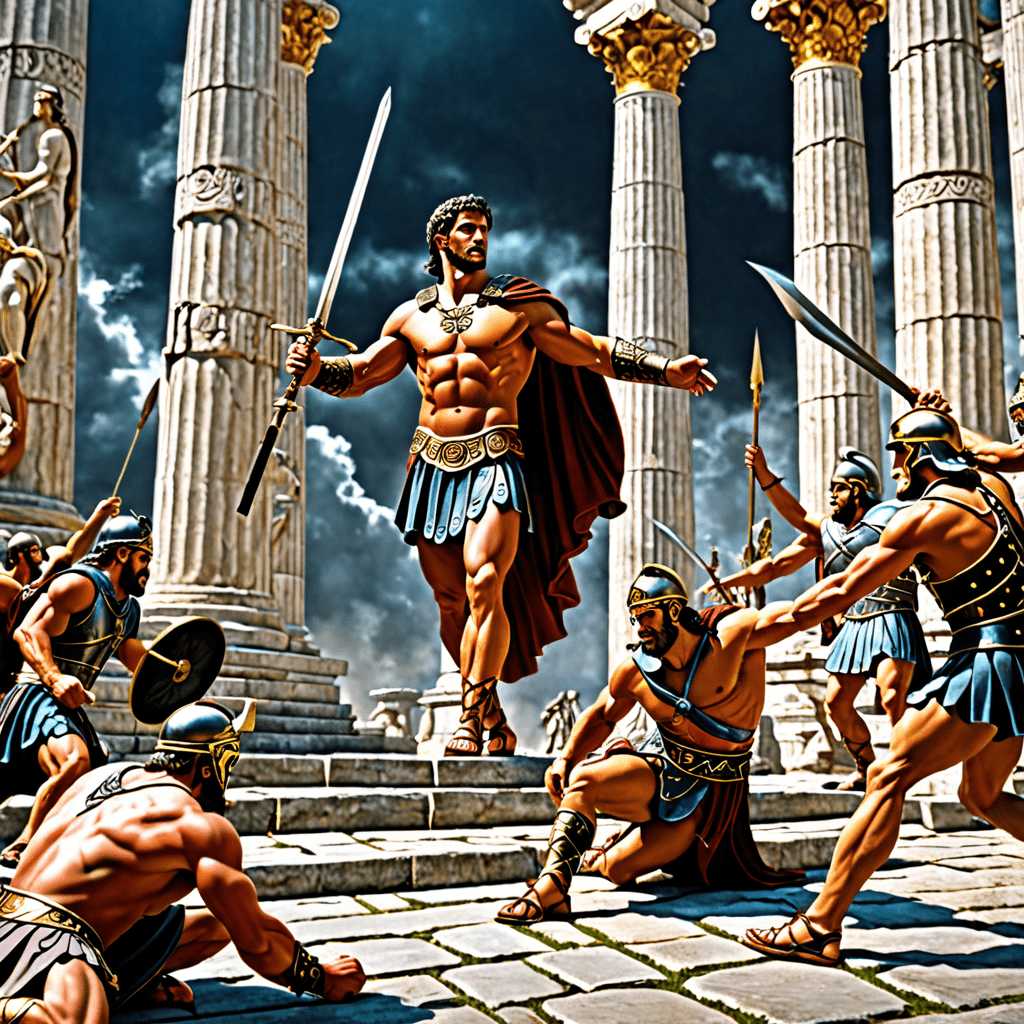Cultural Heroes: The Myths That Inspire Generational Wisdom
I. Introduction
Cultural heroes are figures, often rooted in cultural narratives, that embody the values, aspirations, and ideals of a community. These heroes can be historical figures, mythological characters, or even modern-day icons. They serve as symbols of hope and resilience, guiding individuals and societies through challenges.
Myths play a crucial role in shaping the values and beliefs of a culture. They provide frameworks through which communities understand their world, impart moral lessons, and connect generations. This article explores how cultural heroes influence generational wisdom, highlighting their significance in our lives and societies.
II. The Concept of the Hero in Various Cultures
A. Overview of hero archetypes across cultures
Across the globe, hero archetypes share common characteristics, often reflecting the values and virtues revered by different societies. These archetypes include:
- The Warrior: Embodies strength and bravery, often fighting for justice.
- The Sage: A wise figure who imparts knowledge and guidance.
- The Rebel: Challenges the status quo, advocating for change.
- The Caregiver: Represents compassion and selflessness, often putting others’ needs first.
B. Comparison of Western and Eastern cultural heroes
Western heroes, such as Hercules and King Arthur, often emphasize individualism, strength, and the triumph of good over evil. In contrast, Eastern heroes like Sun Wukong from the “Journey to the West” or Confucius embody collective values, wisdom, and harmony. This contrast highlights the diverse expressions of heroism shaped by different cultural contexts.
C. The evolution of the hero figure through history
The concept of the hero has evolved over time, often mirroring societal changes. For instance, ancient heroes were often demigods or warriors, while modern heroes can be everyday individuals who enact change through social movements or technological advancements. This evolution reflects shifting ideals and the complex nature of heroism in contemporary society.
III. The Role of Myths in Society
A. Explanation of myths and their functions
Myths are traditional stories that explain natural or social phenomena, often involving supernatural beings or events. They serve several functions, including:
- Providing explanations for the unknown.
- Establishing cultural norms and values.
- Creating a sense of identity and belonging within a community.
B. How myths convey moral lessons and cultural values
Myths often embed moral lessons within their narratives, teaching audiences about virtues such as courage, honesty, and sacrifice. For example, the tale of Robin Hood illustrates the value of justice and generosity, while many Indigenous myths emphasize respect for nature and community.
C. Psychological impact of myths on individuals and communities
Myths can have profound psychological effects, providing comfort during difficult times and fostering a shared sense of purpose. They help individuals make sense of their experiences, promoting resilience and hope in the face of adversity.
IV. Case Studies of Prominent Cultural Heroes
A. Analysis of well-known cultural heroes
Figures like Martin Luther King Jr. and Nelson Mandela exemplify the power of cultural heroes in advocating for social justice and equality. Their legacies inspire generations to continue the fight for civil rights and freedom.
B. Traditional heroes in folklore
Folklore contains numerous traditional heroes, such as:
- Hercules: A symbol of strength and perseverance.
- Robin Hood: The archetype of the noble outlaw who fights against injustice.
These figures serve as cultural touchstones, representing the ideals of their respective societies.
C. Modern-day heroes in popular culture
In today’s world, modern heroes often take the form of superheroes in films and literature. Characters like Spider-Man and Wonder Woman not only entertain but also embody values of responsibility, bravery, and compassion, resonating with contemporary audiences.
V. The Transmission of Wisdom Through Generations
A. Oral traditions and storytelling as a means of passing down wisdom
Oral traditions have been pivotal in preserving cultural narratives and wisdom. Storytelling serves as a vehicle for sharing experiences, lessons, and the values represented by cultural heroes.
B. The role of education in preserving cultural heroes and their stories
Education systems play a crucial role in transmitting the stories of cultural heroes. Through literature, history, and social studies, students learn about the impacts these figures have had on society, fostering an appreciation for their contributions.
C. Impact of technology on the transmission of cultural narratives
Technology has transformed how stories are shared and preserved. Digital platforms allow for the wider dissemination of cultural narratives, enabling new generations to engage with historical and contemporary heroes in innovative ways.
VI. The Relevance of Cultural Heroes Today
A. How cultural heroes address contemporary societal challenges
Cultural heroes continue to inspire action in addressing modern challenges, from climate change to social justice. Their stories motivate individuals to engage in activism and community service.
B. Examples of modern heroes and their influence on current movements
Modern heroes like Greta Thunberg and Malala Yousafzai exemplify leadership in contemporary movements. Their courage and commitment to their causes resonate with young people, encouraging them to advocate for change.
C. The role of social media in shaping perceptions of heroism
Social media platforms have become arenas for discussing and celebrating heroism. They allow individuals to share stories of local heroes and movements, democratizing the narrative of who is considered a hero.
VII. Critiques of Hero Worship
A. Examination of the pitfalls of idolizing cultural heroes
While cultural heroes can inspire, idolizing them can lead to unrealistic expectations and disappointment. It’s essential to recognize that heroes are often flawed individuals.
B. The importance of critical thinking and understanding flaws in heroes
Promoting critical thinking about cultural heroes encourages a more nuanced understanding of their contributions and limitations. Recognizing their flaws can help individuals relate more personally to these figures.
C. The balance between inspiration and disillusionment
Finding a balance between inspiration and disillusionment allows societies to appreciate the positive impacts of heroes while acknowledging their complexities. This perspective fosters a more realistic view of heroism.
VIII. The Impact of Cultural Heroes on Identity Formation
A. How cultural heroes shape personal and collective identity
Cultural heroes play a vital role in shaping both personal and collective identities. They provide models for behavior and ideals that individuals and communities aspire to embody.
B. The role of heroes in fostering resilience and hope
By embodying resilience and hope, cultural heroes inspire individuals to overcome challenges and pursue their goals. Their stories offer reassurance that change is possible.
C. Cultural appropriation and the complexities of hero representation
The representation of cultural heroes can sometimes lead to issues of cultural appropriation. It’s essential to approach hero narratives with sensitivity and respect for the cultures they originate from.
IX. Creating New Cultural Heroes
A. The process of hero-making in contemporary society
The process of creating new cultural heroes often involves recognizing everyday individuals who enact positive change. Grassroots movements can elevate these figures to heroic status.
B. The importance of inclusivity and diverse representation in hero narratives
Inclusivity in hero narratives ensures that various voices and experiences are represented. This diversity enriches the cultural landscape and fosters broader understanding and empathy.
C. Encouraging grassroots movements to celebrate local heroes
Grassroots movements can highlight local heroes, bringing attention to individuals who make significant impacts within their communities. Celebrating these figures fosters a sense of belonging and community pride.
X. Conclusion
In summary, cultural heroes and the myths surrounding them play a crucial role in shaping generational wisdom. They inspire individuals, foster resilience, and provide moral guidance throughout history. As we navigate contemporary challenges, it is essential to recognize and celebrate these figures while also critically engaging with their complexities. We must encourage the creation of new heroes who reflect the diverse narratives of our societies, ensuring that future generations continue to find inspiration in cultural heroes.



